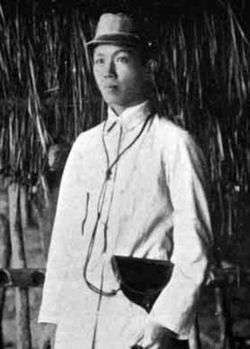Dictator
A dictator is a political leader who possesses absolute power. A dictatorship is a state ruled by one dictator or by a small clique.[2] The word originated as the title of a magistrate in the Roman Republic appointed by the Senate to rule the republic in times of emergency (see Roman dictator and justitium).[3]
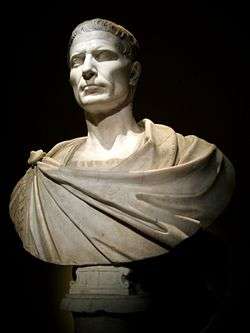
Like the term "tyrant" (which was originally a non-pejorative Ancient Greek title), and to a lesser degree "autocrat", "dictator" came to be used almost exclusively as a non-titular term for oppressive rule. Thus, in modern usage, the term "dictator" is generally used to describe a leader who holds or abuses an extraordinary amount of personal power. Dictatorships are often characterised by some of the following: suspension of elections and civil liberties; proclamation of a state of emergency; rule by decree; repression of political opponents; not abiding by the rule of law procedures, and cult of personality. Dictatorships are often one-party or dominant-party states.[4][5]
A wide variety of leaders coming to power in different kinds of regimes, such as military juntas, one-party states, dominant-party states, and civilian governments under a personal rule, have been described as dictators. They may hold left or right-wing views, or may be apolitical.
Etymology
Originally an emergency legal appointment in the Roman Republic and the Etruscan culture, the term "Dictator" did not have the negative meaning it has now.[6] A Dictator was a magistrate given sole power for a limited duration. At the end of the term, the Dictator's power was returned to normal Consular rule whereupon a dictator provided accountability, though not all dictators accepted a return to power sharing.
The term started to get its modern negative meaning with Cornelius Sulla's ascension to the dictatorship following Sulla's second civil war, making himself the first Dictator in Rome in more than a century (during which the office was ostensibly abolished) as well as de facto eliminating the time limit and need of senatorial acclamation. He avoided a major constitutional crisis by resigning the office after about one year, dying a few years later. Julius Caesar followed Sulla's example in 49 BC and in February 44 BC was proclaimed Dictator perpetuo, "Dictator in perpetuity", officially doing away with any limitations on his power, which he kept until his assassination the following month.
Following Julius' assassination, his heir Augustus was offered the title of dictator, but he declined it. Later successors also declined the title of dictator, and usage of the title soon diminished among Roman rulers.
Modern era

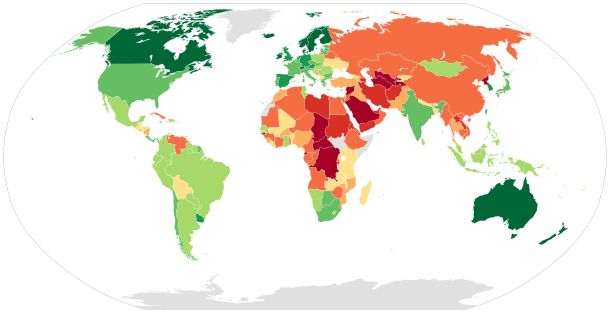
As late as the second half of the 19th century, the term dictator had occasional positive implications. For example, during the Hungarian Revolution of 1848, the national leader Lajos Kossuth was often referred to as dictator, without any negative connotations, by his supporters and detractors alike, although his official title was that of regent-president.[9] When creating a provisional executive in Sicily during the Expedition of the Thousand in 1860, Giuseppe Garibaldi officially assumed the title of "Dictator" (see Dictatorship of Garibaldi). Shortly afterwards, during the 1863 January Uprising in Poland, "Dictator" was also the official title of four leaders, the first being Ludwik Mierosławski.
Past that time, however, the term dictator assumed an invariably negative connotation. In popular usage, a dictatorship is often associated with brutality and oppression. As a result, it is often also used as a term of abuse against political opponents. The term has also come to be associated with megalomania. Many dictators create a cult of personality around themselves and they have also come to grant themselves increasingly grandiloquent titles and honours. For instance, Idi Amin Dada, who had been a British army lieutenant prior to Uganda's independence from Britain in October 1962, subsequently styled himself "His Excellency, President for Life, Field Marshal Al Hadji Doctor[A] Idi Amin Dada, VC,[B] DSO, MC, Conqueror of the British Empire in Africa in General and Uganda in Particular".[10] In the movie The Great Dictator (1940), Charlie Chaplin satirized not only Adolf Hitler but the institution of dictatorship itself.
A benevolent dictatorship refers to a government in which an authoritarian leader exercises absolute political power over the state but is perceived to do so with the regard for benefit of the population as a whole, standing in contrast to the decidedly malevolent stereotype of a dictator. A benevolent dictator may allow for some economic liberalization or democratic decision-making to exist, such as through public referenda or elected representatives with limited power, and often makes preparations for a transition to genuine democracy during or after their term. It might be seen as a republic a form of enlightened despotism. The label has been applied to leaders such as Ioannis Metaxas of Greece (1936–41), Josip Broz Tito of Yugoslavia (1953–80),[11] and Lee Kuan Yew of Singapore (1959–90).[12]
The association between a dictator and the military is a common one; many dictators take great pains to emphasize their connections with the military and they often wear military uniforms. In some cases, this is perfectly legitimate; Francisco Franco was a lieutenant general in the Spanish Army before he became Chief of State of Spain; Manuel Noriega was officially commander of the Panamanian Defense Forces. In other cases, the association is mere pretense.
Some dictators have been masters of crowd manipulation, such as Mussolini and Hitler. Others were more prosaic speakers, such as Stalin and Franco. Typically the dictator's people seize control of all media, censor or destroy the opposition, and give strong doses of propaganda daily, often built around a cult of personality.[13]
Mussolini and Hitler used similar, modest titles referring to them as "the Leader". Mussolini used "Il Duce" and Hitler was generally referred to as "der Führer". Franco used a similar title "El Caudillo" ("the Head") and for Stalin his adopted name became synonyms with his role as the absolute leader. For Mussolini, Hitler, and Franco, the use of modest, non-traditional titles displayed their absolute power even stronger as they did not need any, not even a historic legitimacy either.
Modern usage in formal titles
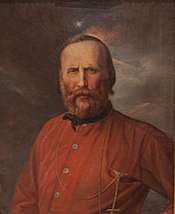
Because of its negative and pejorative connotations, modern authoritarian leaders very rarely (if ever) use the term dictator in their formal titles, instead they most often simply have title of president. In the 19th century, however, its official usage was more common:
- Hungary
- Artúr Görgei was styled Dictator from 11 August – 13 August 1849, during the last days of the Hungarian Revolution of 1848.
- Italy
- In the former city-state of Venice, and while it was a republic resisting annexation by either the kingdom of Piedmont-Sardinia or the Austrian empire, a former Chief Executive (president, 23 March 1848 – 5 July 1848), Daniele Manin (b. 1804 – d. 1857), was styled Dictator 11–13 August 1848 before joining the 13 August 1848 – 7 March 1849 Triumvirate.[14]
- The Dictatorial Government of Sicily (27 May – 4 November 1860) was a provisional executive government appointed by Giuseppe Garibaldi to rule Sicily. The government ended when Sicily's annexation into the Kingdom of Italy was ratified by plebiscite.
- Philippines
- Emilio Aguinaldo, regarded as the First President of the Philippines briefly led a Dictatorial Government and held the title of Dictator from May 24 to June 23, 1898.[15][16]
- Poland
- Józef Chłopicki was styled Dictator from 5 December 1830 – 23 January 1831
- Jan Tyssowski was Dictator from 24 February 1846 – 2 March 1846.
- Ludwik Mierosławski was Dictator from 22 January 1863 – 10 March 1863
- Marian Langiewicz was Dictator from 10 March 1863 – 19 March 1863
- An Executive Dictatorial Commission of three members existed from 19 March 1863 – 20 March 1863
- Romuald Traugutt was Dictator from 17 October 1863 – 10 April 1864
- Nazarov was Dictator of the Don Republic (which before, since its founding on 2 December 1917 at Novocherkassk, had been governed by a Triumvirate including the last pre-Soviet Ataman, Aleksei Maksimovich Kaledin) from 11 February 1918 till 25 February 1918 when Bolshevik troops ended their existence[17]
- Prince N. Tarkovsky was Dictator of the Mountainous Republic of the Northern Caucasus.
Human rights abuses
.jpg)
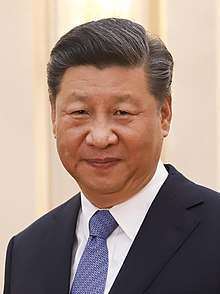
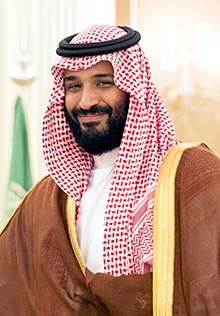
Over time, dictators have been known to use tactics that violate human rights. For example, under the Soviet dictator Joseph Stalin, government policy was enforced by extrajudicial killings, secret police and the notorious Gulag system of concentration camps. Most Gulag inmates were not political prisoners, although significant numbers of political prisoners could be found in the camps at any one time. Data collected from Soviet archives gives the death toll from Gulags at 1,053,829.[21] Other human rights abuses by the Soviet state included human experimentation, the use of psychiatry as a political weapon and the denial of freedoms of religion, assembly, speech and association.
Pol Pot became dictator of Cambodia in 1975. In all, an estimated 1.7 million people (out of a population of 7 million) died due to the policies of his four-year dictatorship.[22] As a result, Pol Pot is sometimes described as "the Hitler of Cambodia" and "a genocidal tyrant".[23]
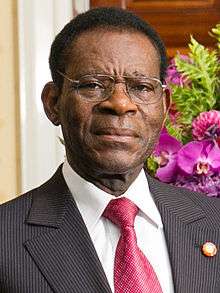
The International Criminal Court issued an arrest warrant for Sudan's military dictator Omar al-Bashir over alleged war crimes in Darfur.[25]
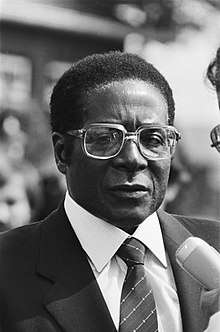
In game theory
In social choice theory, the notion of a dictator is formally defined as a person who can achieve any feasible social outcome he/she wishes. The formal definition yields an interesting distinction between two different types of dictators.
- The strong dictator has, for any social goal he/she has in mind (e.g. raise taxes, having someone killed, etc.), a definite way of achieving that goal. This can be seen as having explicit absolute power, like Sulla.
- The weak dictator has, for any social goal he/she has in mind, and for any political scenario, a course of action that would bring about the desired goal. For the weak dictator, it is usually not enough to "give their orders", rather he/she has to manipulate the political scene appropriately. This means that the weak dictator might actually be lurking in the shadows, working within a political setup that seems to be non-dictatorial. An example of such a figure is Lorenzo the Magnificent, who controlled Renaissance Florence.
Note that these definitions disregard some alleged dictators who are not interested in the actual achieving of social goals, as much as in propaganda and controlling public opinion. Monarchs and military dictators are also excluded from these definitions, because their rule relies on the consent of other political powers (the nobility or the army).
See also
- Authoritarian personality
- Benevolent dictator for life
- Benevolent dictatorship
- Dictator novel
- Emergency powers
- List of coups d'état and coup attempts
- List of coups d'état and coup attempts by country
- List of political leaders who held active military ranks in office
- List of political leaders who suspended the constitution
- Lists of state leaders by year
- Maximum Leader (disambiguation)
- Military rule (disambiguation)
- Strongman (politics)
- Supreme Leader
References
Notes
- Mussolini and his followers consolidated their power through a series of laws that transformed the nation into a one-party dictatorship. Within five years, Mussolini had established dictatorial authority by both legal and extraordinary means and aspired to create a totalitarian state. Mussolini remained in power until he was deposed by King Victor Emmanuel III in 1943, but a few months later he became the leader of the Italian Social Republic, a German client regime in northern Italy – Mussolini held this post until his death in 1945.[1]
- A ^ He conferred a doctorate of law on himself from Makerere University.[26]
- B ^ The Victorious Cross (VC) was a medal made to emulate the British Victoria Cross.[27]
Citations
- Luisa Quartermaine (2000). Mussolini's Last Republic: Propaganda and Politics in the Italian Social Republic (R.S.I.) 1943–45. Intellect Books. p. 21. ISBN 978-1-902454-08-5.
- "Dictatorship" at Merriam Webster (2019)
- "dictator – Definition from the Merriam-Webster Online Dictionary". Merriam-Webster. Archived from the original on 16 May 2008. Retrieved 1 August 2008.
- Papaioannou, Kostadis; vanZanden, Jan Luiten (2015). "The Dictator Effect: How long years in office affect economic development". Journal of Institutional Economics. 11 (1): 111–139. doi:10.1017/S1744137414000356.
- Olson, Mancur (1993). "Dictatorship, Democracy, and Development". American Political Science Review. 87 (3).
- Le Glay, Marcel. (2009). A history of Rome. Wiley-Blackwell. ISBN 978-1-4051-8327-7. OCLC 760889060.
- Freedom in The World 2017 - Populists and Autocrats: The Dual Threat to Global Democracy Archived 2017-07-27 at the Wayback Machine by Freedom House, January 31, 2017
- "Democracy Index 2017 - Economist Intelligence Unit" (PDF). EIU.com. Archived from the original (PDF) on 18 February 2018. Retrieved 17 February 2018.
- https://www.britannica.com/biography/Lajos-Kossuth
- Keatley, Patrick (18 August 2003). "Obituary: Idi Amin". The Guardian. London. Archived from the original on 2013-12-05. Retrieved 2008-03-18.
- Shapiro, Susan; Shapiro, Ronald (2004). The Curtain Rises: Oral Histories of the Fall of Communism in Eastern Europe. McFarland. ISBN 978-0-7864-1672-1.
"...All Yugoslavs had educational opportunities, jobs, food, and housing regardless of nationality. Tito, seen by most as a benevolent dictator, brought peaceful co-existence to the Balkan region, a region historically synonymous with factionalism." - Miller, Matt (2012-05-02). "What Singapore can teach us". The Washington Post. ISSN 0190-8286. Archived from the original on 2016-03-11. Retrieved 2015-11-25.
- Morstein, Marx Fritz; et al. (March 2007). Propaganda and Dictatorship. Princeton UP. ISBN 978-1406747249.
- "Daniele Manin Facts". Biography. Archived from the original on 2016-09-18. Retrieved 6 January 2016.
- "The First Philippine Republic". National Historical Commission. 7 September 2012. Archived from the original on 2017-01-27. Retrieved 26 May 2018.
On June 20, Aguinaldo issued a decree organizing the judiciary, and on June 23, again upon Mabini’s advice, major changes were promulgated and implemented: change of government from Dictatorial to Revolutionary; change of the Executive title from Dictator to President
- Philippine Legislature:100 Years, Cesar Pobre
- Dune, Eduard Martynovich; Koenker, Diane; Smith, S. A. (April 1993). Notes of a Red Guard. Urbana Illinois, U.S.A.: University of Illinois Press. p. 101. ISBN 978-0252062773. Archived from the original on 2017-03-05. Retrieved 2016-01-06.
- Stroup, David R. (19 November 2019). "Why Xi Jinping's Xinjiang policy is a major change in China's ethnic politics". The Washington Post. Retrieved 24 November 2019.
- "Saudi Arabia denies rights activists tortured and sexually harassed in jail". Middle East Eye. 24 November 2018. Archived from the original on 25 November 2018. Retrieved 24 November 2018.
- Summers, Hannah (15 October 2018). "Yemen on brink of 'world's worst famine in 100 years' if war continues". The Guardian. Archived from the original on 21 October 2018. Retrieved 21 October 2018.
- "Gulag Prisoner Population Statistics from 1934 to 1953." Wasatch.edu. Wasatch, n.d. Web. 16 July 2016: "According to a 1993 study of Soviet archival data, a total of 1,053,829 people died in the Gulag from 1934 to 1953. However, taking into account that it was common practice to release prisoners who were either suffering from incurable diseases or on the point of death, the actual Gulag death toll was somewhat higher, amounting to 1,258,537 in 1934-53, or 1.6 million deaths during the whole period from 1929 to 1953.."
- ""Top 15 Toppled Dictators". Time. 20 October 2011. Archived from the original on 2013-08-24. Retrieved 4 March 2017.
- William Branigin, Architect of Genocide Was Unrepentant to the End Archived 2013-05-09 at the Wayback Machine The Washington Post, April 17, 1998
- "Equatorial Guinea country profile Archived 2018-06-10 at the Wayback Machine". BBC News. 8 May 2018.
- "Sudanese dictator Omar al-Bashir faces war crimes charges Archived 2018-05-16 at the Wayback Machine". The Daily Telegraph. July 14, 2008.
- "Idi Amin: a byword for brutality". News24. 2003-07-21. Archived from the original on 2008-06-05. Retrieved 2007-12-02.
- Lloyd, Lorna (2007) p.239
Bibliography
- Bunce & Wolchik, Valerie, Sharon L. (2012). Socialism Vanquished, Socialism Challenged: Eastern Europe and China, 1989-2009. Oxford University Press. ISBN 9780199996261. Retrieved 5 March 2013.
- Issac, Jeffrey C. (2000). Between Past and Future: The Revolutions of 1989 and Their Aftermath. Central European University Press. ISBN 9789639116719. Retrieved 5 March 2013.
- Pavlowitch, Stevan K. (2002). Serbia: The History of an Idea. New York, NY: New York University Press. p. 128. ISBN 978-0-8147-6708-5.CS1 maint: ref=harv (link)
External links

- Current Dictators of the World
